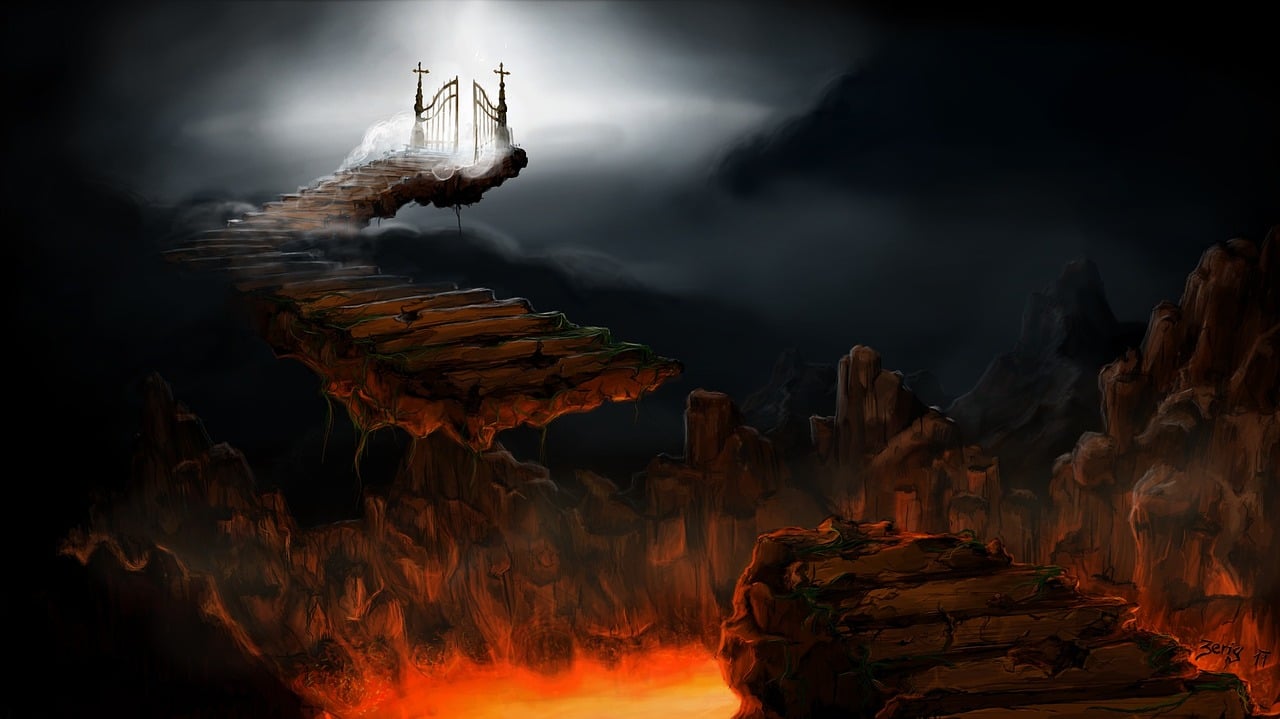
Facing the Hard Questions: 6 Reflections on How a Merciful God Can Create Hell
The notion of hell, a realm characterized by eternal suffering, presents a profound challenge within many religious traditions, particularly in Christianity. How can a deity described as infinitely loving and merciful also be the creator of a place of everlasting punishment? This enduring question has puzzled theologians, philosophers, and believers alike for centuries. In this article, we embark on an introspective journey to explore six perspectives that seek to reconcile the existence of hell with the mercy of God.
Divine Justice and Free Will:
At the core of many theological explanations concerning hell lies the interplay of divine justice and human free will. According to this viewpoint, God, in His mercy, bestows upon humans the gift of autonomy, allowing them to make choices freely. Yet, with this freedom comes accountability. Those who reject God’s love and opt to live in opposition to His will face the consequences of their decisions. In this perspective, hell is not merely a punitive measure imposed by a vengeful deity but rather the natural outcome of human choices.
Love and Justice:
Another reflection revolves around the intertwined concepts of love and justice. God’s mercy does not negate His justice; instead, it complements it. Love seeks the welfare of the beloved, while justice demands accountability for wrongdoing. Hell, therefore, can be perceived as the consequence of God’s love for both the victim and the transgressor. It stands as evidence of His commitment to uphold justice and restore order in a world tainted by sin and injustice.
Redemptive Suffering:
Some theologians propose that hell serves a redemptive purpose, not only for those condemned but also for the entirety of creation. In this view, the suffering experienced in hell contributes to the purification and eventual restoration of the cosmos. Just as a surgeon may inflict pain to heal a patient, God permits suffering in hell as part of His divine plan to redeem and reconcile all things to Himself. Consequently, hell, while inherently tragic, becomes a necessary element of the overarching narrative of salvation.
The Mystery of Divine Sovereignty:
Central to the question of hell lies the enigma of divine sovereignty and human agency. While God’s sovereignty encompasses all of creation, including the existence of hell, human beings retain a degree of freedom to accept or reject God’s grace. This tension between God’s sovereignty and human freedom defies simplistic explanations, prompting believers to embrace the mystery of divine providence while grappling with the complexities of human choice.
Universal Reconciliation:
An increasingly prevalent perspective posits the eventual reconciliation of all beings with God, including those consigned to hell. Advocates of universal reconciliation argue that God’s mercy extends infinitely beyond human comprehension, encompassing even those deemed irredeemable. In this view, hell functions as a temporary state of correction rather than eternal damnation, leading ultimately to the restoration of all things in God.
The Limits of Human Understanding:
Lastly, it is essential to acknowledge the limitations of human comprehension when confronting profound theological mysteries such as hell. As finite beings, we are inherently restricted in our capacity to grasp the infinite complexities of divine justice and mercy. While we may formulate theological reflections and engage in philosophical discourse, we must humbly recognize that certain questions may remain beyond our reach until we stand in the presence of God Himself.
Conclusion:
In light of the profound theological dilemma regarding how a merciful God could create hell, believers are called to embark on a journey of introspection, contemplation, and humble inquiry. The perspectives outlined in this article offer various insights into this age-old conundrum, inviting individuals to grapple with the tension between divine mercy and human responsibility. Ultimately, while the existence of hell may remain a mystery, it is through grappling with such mysteries that believers deepen their understanding of God’s nature and the complexities of His relationship with humanity.

